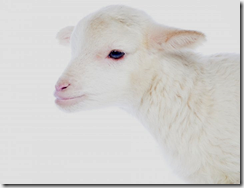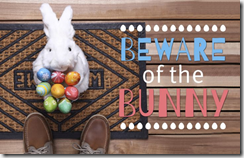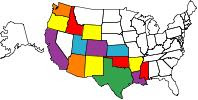For “Scripture Sunday”:
A Story of the First Passover
This story gives a child’s view of what it might have been like for families on that first Passover leading to the freeing of Israel from Egypt (Exodus 3-13).
An artist’s concept of an Israelite putting the blood of a lamb on his doorposts before the first Passover (graphic © V. Gilbert & Arlisle F. Beers, visualbiblealive.com).
PDF to print for family reading
“The boy’s heart pounded as he helped his father secure the struggling lamb. He shivered a little as the sun’s rays dimmed and the coolness of the spring evening settled softly over Goshen. They had slaughtered animals before to provide meat for a special occasion. But this time was different.
This lamb would play a part in the last great plague the LORD was going to send on Egypt. Will Pharaoh finally give in? the boy wondered anxiously. Or will he refuse as he has done so many times before?”
More at: http://lifehopeandtruth.com/bible/bible-study/bible-stories/a-story-of-the-first-passover/
________
More Bible Stories for children:
Bible Stories: The Purpose Behind the Stories
________
Christ’s Body
Matthew 26:26
And as they were eating, Jesus took bread, blessed and broke it, and gave it to the disciples and said, “Take, eat; this is My body.”
“The breaking of the unleavened bread at the New Testament Passover service is symbolic of Christ’s suffering in our place for our sins. It reminds us of our deserved punishment that fell on Jesus as His body was beaten and broken.
Eating the bread is also symbolic of our allowing Jesus Christ to live His life in us, and our need to live by every word of God (John 6:35; Galatians 2:20; Matthew 4:4). Just as physical food is essential to maintain physical life, living by the spiritual “bread” is essential for a healthy spiritual life.”
________
Update:
A few things kinda got me down this week. I am so tired of trying to keep up this house and fix the damaged guest house too. I really wanted to be able to concentrate on getting this house sold. The hedge looks like a weed patch, and the grass (weeds) is long and staggly. Without the income from the guest house, my little pension only covers the the cost of the Property Taxes on both places, the Property Owners Assn fees, internet/phone/TV and the insurance on both places and the van. So anything else I have to earn by selling stuff, and that is a lot of work.
Especially as someone bought something that was brand new in blister pack, opened it and then found out it wasn’t what they thought it was, and wants a refund even though the ad was very specific and informative, so my funds are held up until it is resolved. I don’t think it’s my fault that they didn’t research what they were buying. Then there is a stolen dog that I am worrying about, hoping that he is not being used as a “bait dog” for dog-fighting. I tried not to think about these things while I was cooking several dishes on Wednesday, and Thursday for the Passover meal on Friday evening.
Another helper has been working on the wiring, putting in switches and running wire to ceiling fans etc. but he didn’t show up today. As we haven’t even started on the plumbing there still isn’t any water in the guest house yet, but I still have to pay the basic $40 a month for water. Another expense. Jay has been staying home with his mother taking care of her as she just got out of the hospital again.
“Life is short, one should wake up everyday and ask themself if they’d rather be doing something else. And if so, do it.” Well, I am getting to that point, I’d like to out from under the expense and responsibility of these two houses and be somewhere else.
The Sabbath service was so neat. We had a young couple from another Saturday Sabbath church in Willis visit us because of the Passover. Our pastor had married them 10 years ago, plus they are friends of our Song Leader, and I knew them from the other church, so they weren’t strangers. One thing that we were all so happy about is that we have been praying for his brother every week for a year as he has been dying several times from colon cancer, and yesterday we found out that he had one more surgery and is now fine and recovered. Hallelujah!
The Bible readings were Psalm 67, Lev. 16:1-18:30,Eze. 22:1-19, and Heb. 9:1 22. The Teaching was about The Passover and the meaning of the leavening, ie. sin. 1 Cor.5:6 says that a little leavening will leaven the whole lump, and the elder explained how a little sin can lead to other larger ones. Like when King David saw Bathsheba bathing, he should not have let it turn into all the sins that it did, including murder. That is told at 2 Sam. 11th chapter.
For the potluck there were a lot of left-overs from the Passover meal the night before, so that we wouldn’t have to cook on the Sabbath. The lamb which had been relieved of all the bones the night before, was warmed up, and some of the liquid which had been separated from the meat was made into gravy for the left over baked potates. They were cut up and made into Oven Roasted Potatoes with olive oil and seasonings. There was some more Herbed Freekeh and other salads, Lentils with Veggies, and other veggies, gefilte fish loaf and chicken. Several ladies had brought homemade unleavened bread, some flavoured with garlic or covered in cinnamon sugar. Then there was plenty of matzos, jellys, fruits and honey. We even had some lamb and liquid to freeze for another Sabbath. After we had eaten and cleaned up the kitchen, we sat around talking for ages, and really enjoyed our time together.
I put the lamb bones in my pressure cooker and made the lamb bone broth today.















